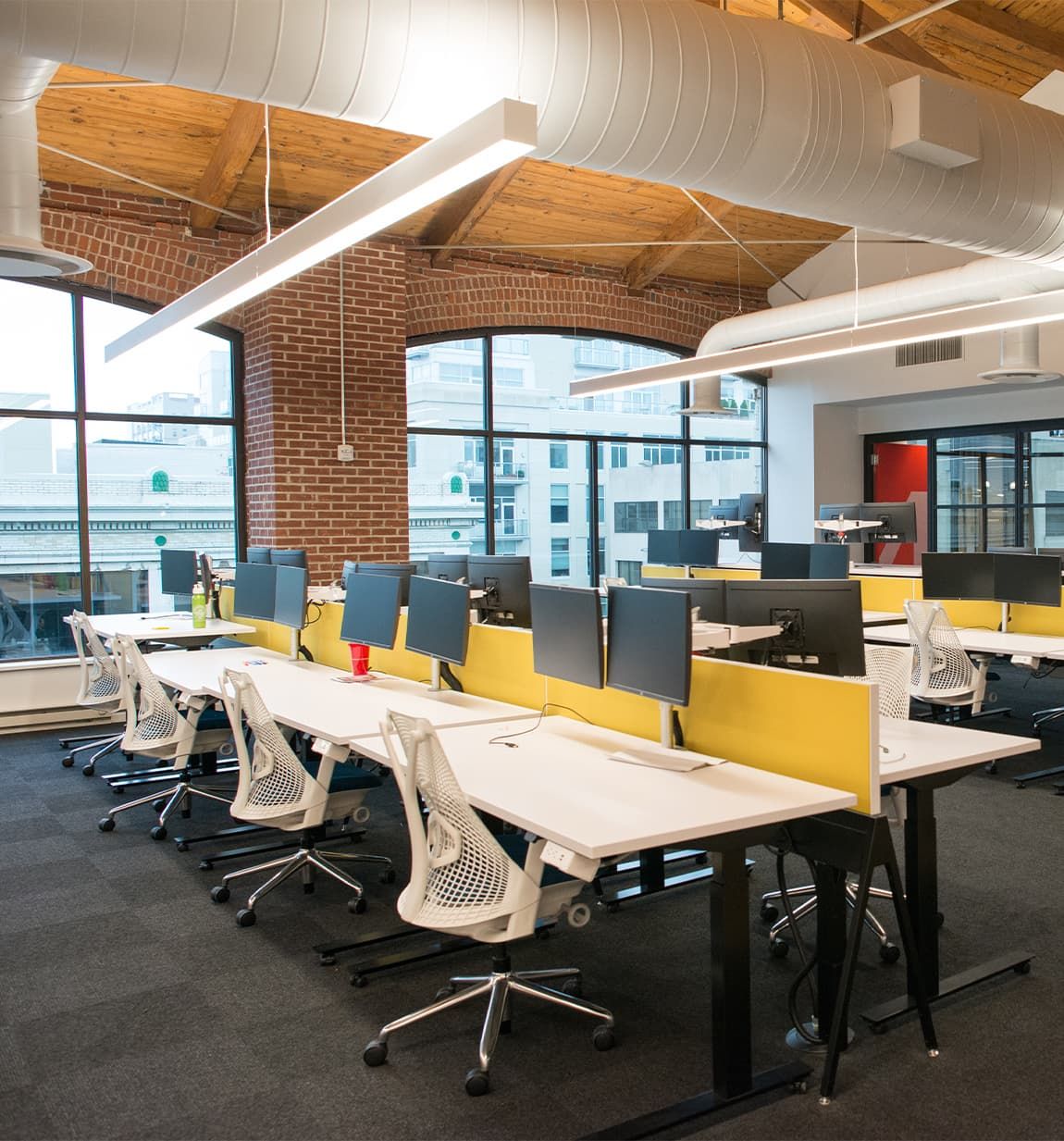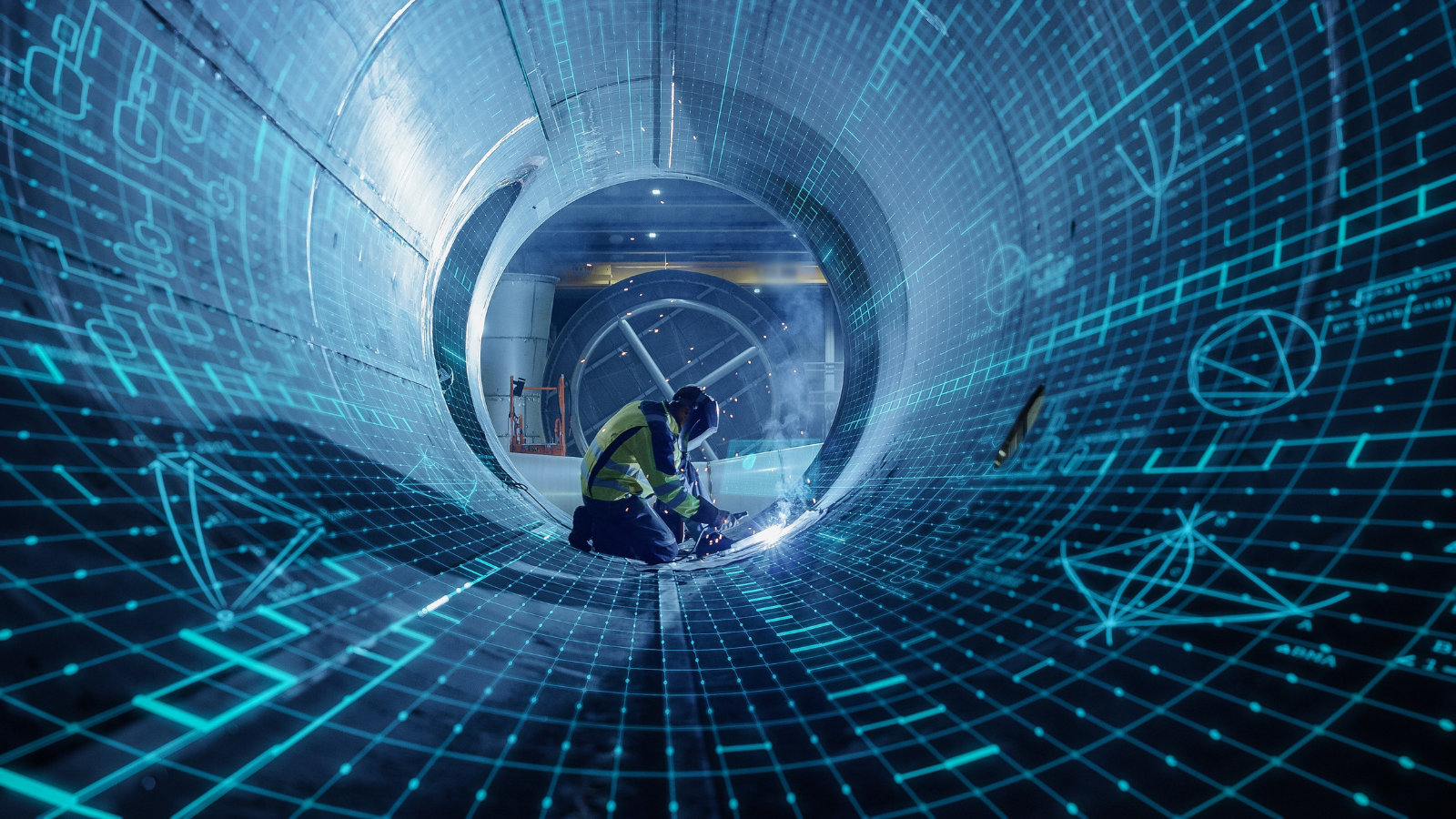The construction industry in the Gulf Cooperation Council (GCC) region is undergoing rapid transformation, driven largely by digital twin technology. This technology provides real-time simulation, monitoring, and optimisation of construction assets, making it essential for managing the region’s vast infrastructure projects. The Middle East, particularly through high-profile initiatives such as NEOM and The Red Sea Project in Saudi Arabia, is at the forefront of this digital revolution.
In this blog, we’ll explore how digital twins are shaping the future of construction in the GCC, the challenges involved, and the steps necessary to establish a digital twin centre specifically tailored to the region’s unique demands.
What is a Digital Twin?
A digital twin is a dynamic, real-time digital representation of a physical object, process, or system, updated continuously through the integration of data from IoT sensors, drones, and other connected devices. This virtual replica allows for comprehensive oversight throughout a project’s lifecycle, from design and construction through to operation and maintenance. When paired with Building Information Modelling (BIM), digital twins give construction teams the ability to monitor project progress, simulate outcomes, and optimise workflows.
In the Middle East, where large-scale projects are pushing the boundaries of smart infrastructure development, digital twins are becoming indispensable. They enable engineers and contractors to predict and resolve potential issues early, leading to reduced delays, lower costs, and improved sustainability. The PWC Report on ‘How Digital Twins Can Make Smarter Cities’ also stated that digital twins are being used to plan for Dubai’s 2040 Urban Master Plan, which aims to accommodate 2.5 million additional residents through better resource management and infrastructure planning.
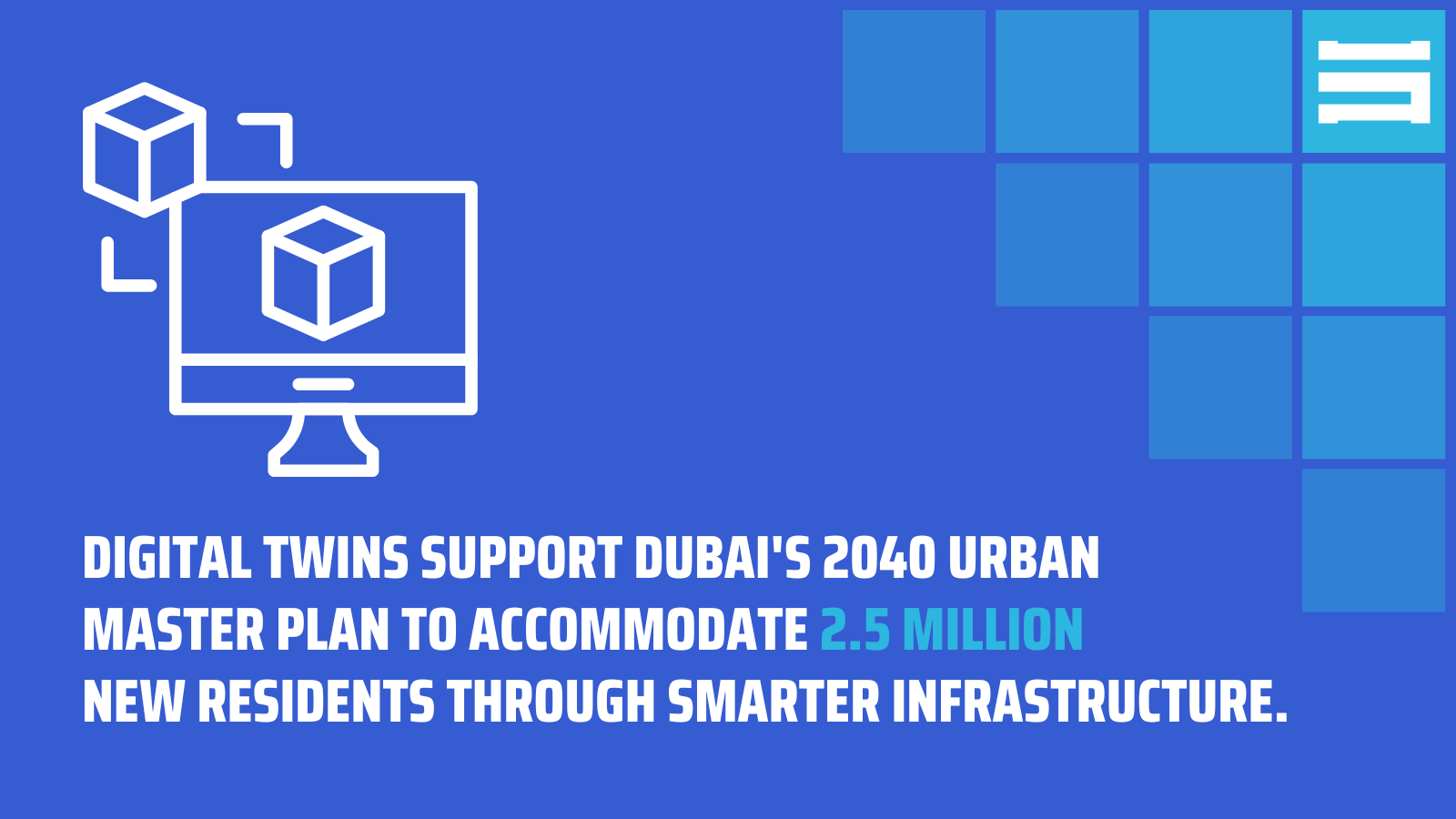
What are the Benefits of Digital Twins for the GCC Construction Industry?
1. Improved Project Management and Resource Efficiency
Mega-projects in the GCC, such as Dubai Expo City, Riyadh’s King Abdullah Financial District, and Saudi Arabia’s Vision 2030 initiatives, are complex and require the efficient management of resources. Digital twins simplify this by providing real-time data and insights. These insights allow project managers to monitor resource allocation, track progress, and optimise project timelines, reducing delays.
2. Enhanced Collaboration Across Teams
Digital twins facilitate better collaboration among teams, especially in geographically dispersed projects. Using immersive 3D models, all stakeholders, from contractors to engineers, can virtually inspect job sites, annotate changes, and communicate more effectively, minimising the risk of miscommunication. Tools like BIM are often integrated with digital twins, ensuring everyone works from the same up-to-date information.
3. Improved Compliance with Local Regulations
The GCC operates under strict regulatory frameworks, particularly regarding sustainability and safety. Digital twins allow developers to simulate different regulatory scenarios during the planning phase, ensuring compliance with local and international building codes before construction begins. This reduces the risk of non-compliance and avoids costly rework or delays.
4. Cost Reduction and Optimisation
Digital twins provide significant cost savings by reducing the need for site visits and enabling remote monitoring of job sites. More importantly, they help prevent costly errors by allowing early identification of issues that could otherwise delay a project. The ability to monitor resource usage in real-time helps optimise budgets, making digital twins invaluable in large-scale infrastructure projects like NEOM.
5. Sustainability and Green Building Design
Sustainability is a central focus in the GCC, with initiatives such as Saudi Arabia’s Vision 2030 promoting greener cities and energy-efficient buildings. Digital twins allow developers to simulate and optimise energy use, material efficiency, and overall environmental impact, helping projects meet LEED and BREEAM standards. By providing continuous monitoring, digital twins also ensure that sustainability goals are met throughout the lifecycle of the building.
What are the Challenges of Adopting Digital Twins in the GCC?
The implementation of digital twin technology in the Gulf Cooperation Council (GCC) region presents significant opportunities, but it also comes with its own set of challenges. From high initial investment costs to skills shortages, these hurdles need to be carefully navigated to ensure the successful integration of digital twins into large-scale construction projects.
1. High Initial Investment Costs
One of the most significant challenges facing the adoption of digital twin technology in the GCC is the high upfront investment required. Developing a comprehensive digital twin system involves substantial expenditure on IoT sensors, advanced data infrastructure, software integration, and hiring skilled personnel capable of managing and operating the technology. For large-scale infrastructure projects like Saudi Arabia’s NEOM or Dubai’s Expo City, these costs are justified by the long-term benefits—such as optimised resource management, reduced operational costs, and improved project timelines. However, for smaller construction projects, the high capital outlay can be a considerable barrier. Many smaller firms struggle to justify the significant initial expenditure, especially when the return on investment (ROI) may not be immediate. As a result, smaller and mid-sized firms may be hesitant to adopt digital twin technology despite the efficiencies it promises.
2. Data Management and Security
The use of digital twins generates enormous amounts of data, particularly when deployed in complex urban infrastructure and smart city projects. Managing this data efficiently is crucial, but it also poses a significant challenge. Construction companies must develop these robust data management systems that ensure the data is organised, accessible, and usable across different teams and project stages. More importantly, the transition to interconnected infrastructures across the GCC’s growing smart cities raises serious concerns around data security. As digital twins gather sensitive information about urban infrastructure, public safety systems, and utility networks, this data becomes a potential target for cyber-attacks. Implementing strong cybersecurity protocols and data governance frameworks is vital to protect this information and maintain the integrity of the smart infrastructure.
3. Skills Shortages
Another critical challenge is the shortage of professionals with the necessary expertise to manage and maintain digital twin systems. In the GCC, where digital transformation is still in its early stages, there is a growing demand for skilled technicians, data scientists, and engineers capable of handling the complexity of digital twin technology. However, the current workforce lacks enough professionals with these specialised skills. To bridge this gap, construction firms and governments need to invest heavily in training programmes and collaborate with international technology companies to bring in expertise. Additionally, there must be a greater emphasis on incorporating digital construction technologies into educational curricula, ensuring that the future workforce is equipped with the skills required to manage these cutting-edge systems.
In summary, while the adoption of digital twin technology offers transformative potential for the construction sector in the GCC, overcoming these challenges—particularly the financial burden, data management complexities, and skills shortages—will be essential for the region to fully realise the benefits of this innovative technology.
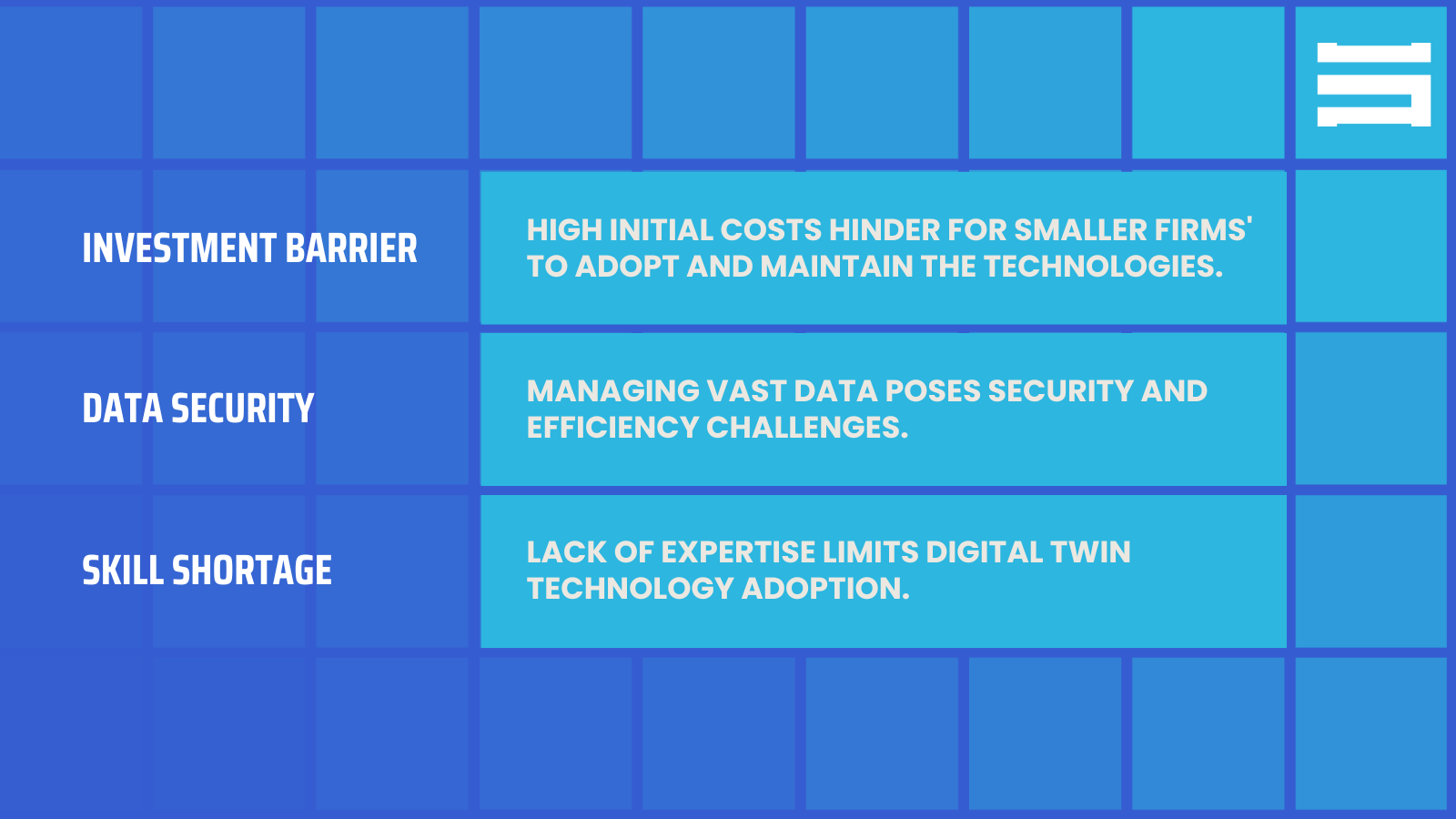
How Do I Implement Digital Twin Systems in the GCC?
Establishing digital twin technology in the Gulf Cooperation Council (GCC) region is a complex but rewarding endeavor. As the region moves rapidly towards smart cities, large-scale infrastructure projects, and ambitious sustainability goals, digital twin technology is poised to play a crucial role in transforming urban development. However, successfully implementing a digital twin system requires a structured and strategic approach. Below is a guide outlining the essential steps for setting up a digital twin system tailored to the unique needs of the GCC, ensuring both long-term effectiveness and sustainability.
1. Define Key Objectives and Use Cases
The first step in establishing a successful digital twin centre is to clearly define its objectives and the specific use cases it will address. Given the broad scope of digital twin technology, it’s crucial to tailor the centre’s functions to the unique challenges and opportunities within the GCC. Key use cases in this region typically include:
- Real-Time Asset Monitoring: This involves using sensors and IoT devices to monitor the performance and condition of physical infrastructure assets, such as roads, bridges, and buildings, in real time. Real-time monitoring ensures that any issues are immediately flagged, enabling timely interventions and optimised maintenance schedules.
- Predictive Maintenance: Digital twins enable construction and urban management teams to predict potential equipment failures or infrastructure degradation before they occur. By analysing data trends, the technology allows for proactive maintenance, extending the lifespan of assets and reducing costly downtime.
- Urban Management for Smart Cities: With the GCC advancing smart city initiatives like Dubai, NEOM, and Lusail City, digital twins can support urban planning and infrastructure management by providing comprehensive real-time data on traffic systems, energy grids, and public utilities. This facilitates efficient urban management and enhances the quality of life for residents.
Developers should also ensure that the centre’s functions align with sustainability goals, such as those outlined in Saudi Arabia’s Vision 2030. By focusing on energy efficiency, renewable resources, and smart infrastructure, the digital twin centre can contribute to the GCC’s long-term environmental objectives.
2. Develop a Phased Implementation Plan
A phased approach to digital twin implementation is highly recommended to manage risks and allow for gradual integration of the technology. This strategy ensures that each phase of the deployment is thoroughly tested and refined before expanding to more complex applications.
Step-by-Step Phased Approach:
- Phase 1: Pilot for Asset Monitoring: Start by implementing a pilot programme focused on real-time monitoring of specific assets or infrastructure components, such as water supply systems, transportation networks, or smart building facilities. This initial phase allows teams to evaluate the effectiveness of the sensors, data integration, and overall system performance.
- Phase 2: Expansion to Predictive Maintenance: Once asset monitoring is successfully in place, the next phase should focus on predictive maintenance. By leveraging data collected during the monitoring phase, machine learning algorithms can be deployed to predict when and where maintenance will be needed, optimising maintenance schedules and preventing unexpected failures.
- Phase 3: Full-Scale Urban Infrastructure Management: The final phase involves scaling up the digital twin centre’s capabilities to manage entire urban systems. This includes traffic flow optimisation, energy grid management, and real-time monitoring of public safety infrastructure. By this stage, the centre should be fully equipped to handle the complexity of smart city operations across various domains.
This gradual approach ensures that the centre can adapt to challenges and refine processes along the way, minimising the risks of large-scale deployment failures. A well-structured phased plan also provides a clear roadmap for stakeholders and helps manage costs effectively by spreading investments over time.
3. Leverage Public-Private Partnerships (PPP)
Public-private partnerships (PPPs) are essential to the successful establishment of digital twin centres in the GCC. These partnerships allow governments to collaborate with private firms that bring technological expertise, innovation, and funding, ensuring the project remains viable both financially and technically.
Benefits of PPPs in Digital Twin Implementation:
- Cost Sharing: Digital twin centres require substantial investment in IoT infrastructure, advanced data management systems, and software integration. Through PPPs, these costs can be shared between the public sector and private partners, easing the financial burden on governments and ensuring that cutting-edge technologies are utilised.
- Access to Advanced Technologies: By partnering with international technology firms, digital twin centres can access state-of-the-art tools and platforms that support real-time data analysis, AI-driven predictive models, and scalable solutions for large urban environments. These partnerships ensure that the centre is equipped with the latest innovations, tailored to the needs of the GCC’s ambitious urban projects.
- Knowledge Transfer and Skill Development: PPPs also facilitate the transfer of knowledge and expertise from international tech firms to local teams. This is especially important given the skills shortages in the GCC. Private partners can help train local professionals, while government investment in education and training ensures that the local workforce is equipped to manage and operate digital twin systems in the long term.
What are the Future Trends for Digital Twins in the GCC?
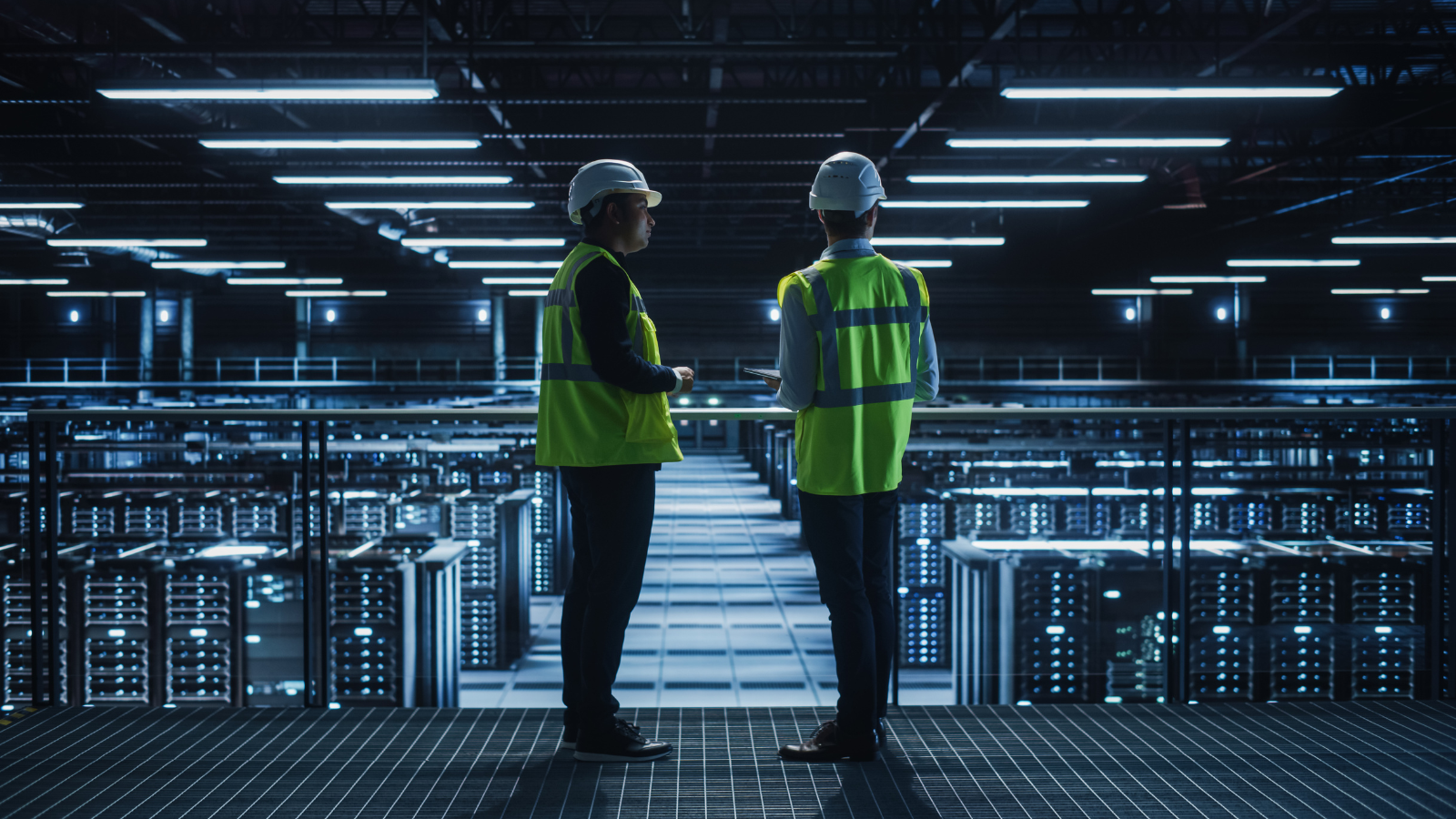
- Enhanced Urban Planning and Infrastructure Management: Digital twins will become central to managing and optimising smart city infrastructure, such as traffic systems, energy grids, and utilities. By providing real-time data and predictive analytics, these systems will support the development of more efficient, adaptable urban environments.
- Predictive Maintenance and Resilience: As digital twins gather real-time data from infrastructure, they enable predictive maintenance, allowing cities to address potential issues before they escalate. This improves resilience against wear and tear or unexpected events, reducing maintenance costs and ensuring uninterrupted services.
- Sustainability and Energy Efficiency: Digital twins will play a crucial role in optimising energy use, helping developers and city planners design buildings and infrastructure that reduce carbon footprints. By simulating energy consumption, they support the GCC’s sustainability goals, promoting the use of renewable energy.
- Climate Adaptation and Risk Management: Digital twins will help cities in the GCC adapt to climate change by simulating environmental risks such as flooding, extreme heat, and sea-level rise. This allows planners to develop strategies for mitigating these risks and enhancing the resilience of critical infrastructure.
- Citizen Engagement and Public Safety: With interactive platforms, digital twins will enhance citizen engagement by allowing residents to monitor and interact with real-time data on urban services. This transparency will improve public safety initiatives and foster more informed, resilient communities.
Conclusion
Digital twins are revolutionising the construction industry in the GCC, offering unprecedented improvements in project management, collaboration, and sustainability. While challenges such as high initial investment and skills shortages remain, the long-term benefits of digital twin technology far outweigh these obstacles. As the GCC continues to pursue ambitious smart city and infrastructure projects, digital twin centres will play a pivotal role in ensuring that these developments are efficient, resilient, and sustainable.
About us
Stonehaven is a leading project management company and construction consultant based in Dubai, offering comprehensive construction management services across the UAE with offices located in Dubai, UK and Sri Lanka. As one of the leading project management companies in Dubai, we manage projects from inception to completion, ensuring quality, efficiency, and cost-effectiveness at every stage.
We deliver value through expert project management consultancy services, tailored to meet the unique needs of each client. Our core services include Cost Management, Project Management, Construction Supervision, Engineering Support, Design Support, and Marketing & Communications. Whether you’re looking for construction consultants or project managers in the UAE and wider GCC region, Stonehaven is your trusted partner for achieving excellence in your next project.
With extensive experience across the Gulf Cooperation Council (GCC) region, we are uniquely positioned to support the region’s ambitious smart city and infrastructure projects. By integrating cutting-edge technologies with our deep knowledge of local market demands, we help clients align their projects with the GCC’s sustainability goals and regulatory frameworks.
Whether it's guiding the phased implementation of digital twins or managing large-scale infrastructure developments, Stonehaven is committed to delivering solutions that drive innovation, efficiency, and longevity for our clients.






